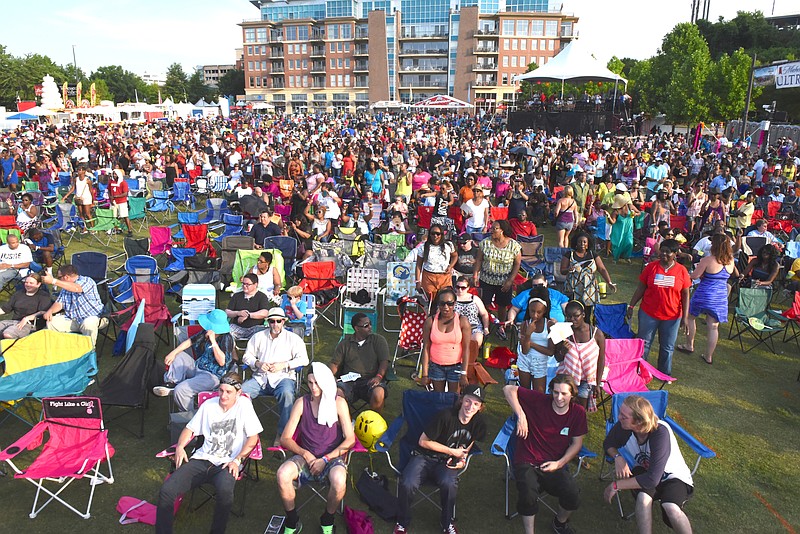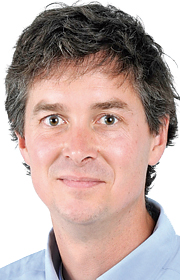Summer approaches. It's music festival season.
According to #BookMoreWomen, "all-male acts make up 70% of major U.S. festival music lineups."
In other words, for every 10 bands on a festival lineup, seven are entirely men.
Is this true locally?
Riverbend. Nightfall. Bonnaroo. Moon River.
How many women will take the stage?
Using band photos, websites and videos - yes, I admit, much of it was profiling - I divided performers into three categories:
1. Male performers or all-male bands. (Think Lionel Richie.)
2. Female performers or all-female bands. (Think Brandi Carlile.)
3. A blend. (Like The War and Treaty.)
Let's start with Bonnaroo, the Manchester, Tennessee, festival that begins in June.
Zero.
The answer's zero.
Bonnaroo doesn't have a single female headliner this year. In fact, it never has.
In two weeks, Riverbend begins.
There are 12 main acts scheduled on two stages: the Coca-Cola stage and the Bud Light stage.
Of the Coca-Cola stage acts, four main headliners are men: Keith Urban, Macklemore, Lionel Richie and Weezer.
All great acts. Yet all men.
There isn't one female headliner on the Coke stage.
Of the eight performers on the Bud Light stage, five are all male.
Two are mixed - bands with both male and female performers.
One act is entirely female.
Only one.
What about Nightfall, already into its third week of the season?
Of the 17 headline performers scheduled, 12 are all male.
Only two are women.
Three other bands have co-ed lineups: female vocalists with male musicians or a similar combination.
Were you to go to every Nightfall show and every performance on Riverbend's two main stages, you would encounter 29 different bands.
Only three would be all-women performers.
In early September, the popular Moon River Festival returns.
There are 22 bands scheduled.
Ten are entirely men.
Four are entirely female.
Eight are mixed: male and female musicians together.
That's the most equitable so far.
Why does it matter?
Because the music stage doesn't belong exclusively to men.
Yes, there are brilliant musicians who are men.
But there are equally brilliant women who are given unequal stage time.
Especially on this day - Mother's Day - we must ask: How are women represented, seen and valued?
What if our local festivals pledged a 50/50 balance in the next year?
Not out of superficial check-box quota, but because women make good music, too.
Plus, more women (51%) attend music festivals than men (49%), according to 2015 research by the Nielsen Company.
But wait.
"Festivals are more popular among Hispanics and African Americans than they are with the general population," the research claimed.
So let's look at race and color.
At Nightfall, of 17 booked acts, 12 are entirely white. (Or fronted by white musicians.)
Two are black.
Three are integrated: both black and white musicians together.
At Riverbend's Coca-Cola stage, three of the four headliners are white.
On the Bud Light stage, at least two headliners are African American performers.
There's an Afro-Latin band.
And four white headliners.
At Moon River, 16 of the 20 acts are white.
Chattanooga, this is a problem.
"I strongly believe that it is our responsibility to showcase talent that reflects all of our city's cultural landscape. It's extremely important to ensure diverse representation and give a voice to artists who are marginalized," said Shane Morrow.
Morrow, once with festival-turned-nonprofit Jazzanooga, has led efforts to diversify the mostly white narrowness of this city's art scene. Now with RISE - Responsive Initiatives for Social Empowerment - Morrow's work includes hosting the Levitt AMP Series, a series of free concerts at the Bessie Smith Cultural Center.
Last year, there were 10 main headlining acts. (Morrow books local artists as openers.)
All were African American or Afro-Latin.
Two were solo female artists. Another was a couple: male and female.
Another - Big Freedia - is an openly gay man and LGBTQ musician.
"By amplifying the music and voices of women and people of color to a wider audience, our communities will be able to hear multiple perspectives and creative expression that represents more than just one segment of the community," Morrow said.
It's reminiscent of the Chattanooga Theater Center's recent vow to perform a play each year by the great African American playwright, August Wilson.
"We aren't booking talent to sell tickets," said Morrow. "We're booking talent to promote community unity through the power of the arts."
Organizing, booking, scheduling a music festival must be deeply complex, far more than most of us know. And I'm grateful for the good, conscientious work of many who've developed our music scene.
Yet we have a diversity crisis in this city. We are a white city becoming whiter, while much of the power realm remains male-centric.
Our music festivals should be part of the solution, not a perpetuation of the rigid problem.
David Cook writes a Sunday column and can be reached at dcook@timesfreepress.com or 423-757-6329.

